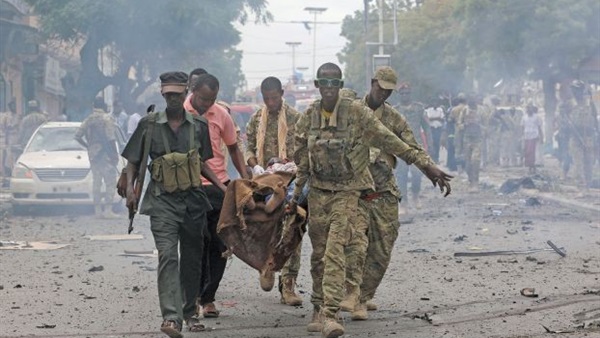|
Getting your Trinity Audio player ready...
|
The Southern African People’s Solidarity Network (SAPSN) and the Crisis in Zimbabwe Coalition (CiZC) are among civil society organisations that are speaking out against terrorism in Mozambique and the reluctance by the Southern African Development Community (SADC) leaders to take robust action to address the conflict.
This follows the Extraordinary SADC Peoples Summit of representatives from social movements and Civil Society Organisations held virtually on the 8th of April 2021 to shadow the Extraordinary SADC Double Troika Summit convened by SADC leaders to address the ongoing conflict in Mozambique.
The People’s Summit received verified reports on the humanitarian, human rights and economic impacts of the conflict. Nearly 3 000 civilians have been reported dead and a further 700 000 civilians displaced. Over 1 million people are estimated to be in urgent need of humanitarian support.
The Summit condemned the disproportionate targeting of women and children as objects of sexual violence attributed to both the insurgents and State security.
The People’s Summit expressed concern over the absence of a robust SADC intervention mechanism or process since the onset of the conflict in 2017. It also rejected the thesis that the ISIS, Al Shabaab Mozambique or foreign militias are sorely responsible for the conflict and highlighted the combustive interplay between unresolved local grievances and the collusion of native elites and foreign cartels in stripping Cabo Delgado resources.
The Summit noted with concern the failure by the Mozambican government to guarantee the security of civilians and address the humanitarian impacts of the conflict.
In Cabo Delgado, there is the escalation of rights violations particularly the rape of young girls and women perpetrated by both the insurgents and State Security Forces. There is also concern over the growth of a regional cross-boundary illicit economy in drugs, minerals, human trafficking and small arms in the region as a direct result of the conflict.
“We are calling for an end to military hostilities and removal of mercenary security companies, foreign insurgents and other destabilizing forces in the Cabo Delgado region. There is a need for an inclusive national dialogue process aimed at achieving lasting peace through resolving the root and underlying causes of the conflict in Northern Mozambique. We urge SADC leaders to urgently deploy a high-level team of envoys to engage all stakeholders and inform a comprehensive SADC regional response to address the conflict.”
Abigale Mupambi, the National Coordinator of the Civic Society and Churches Joint Forum said the insurgency in Mozambique is akin to insurgency everywhere in Africa.
“The societies in Mozambique and Africa as a whole are currently affected by the developments in Cabo Delgado, Mozambique. We need our regional block SADC and AU to quickly intervene and assure the people of Mozambique and Africans in particular, of peace and security. The conflict is a disturbing scenario that has capacity to temper with the inter-regional peace and stability.
“We condemn the killings and abuses of innocent civilians who include women and children. The church has its foundation rooted in the values of respecting lives. As such, we as the Civic Society and Churches Joint Forum are calling for action and prayers towards curbing this possible regional threat,” Mupambi said.
SASPN and CiZC are also calling for immediate declaration of a Humanitarian Emergency to facilitate the mobilization of necessary humanitarian interventions in Mozambique and urged SADC leaders, to prioritize the economic emancipation of the region through the reversal of harmful extractive contracts and debts arrangements.
They underscored the need for SADC to strengthen and implement regionally binding frameworks to regulate the operations of extractive industries and ensure compliance with international human rights standards.






